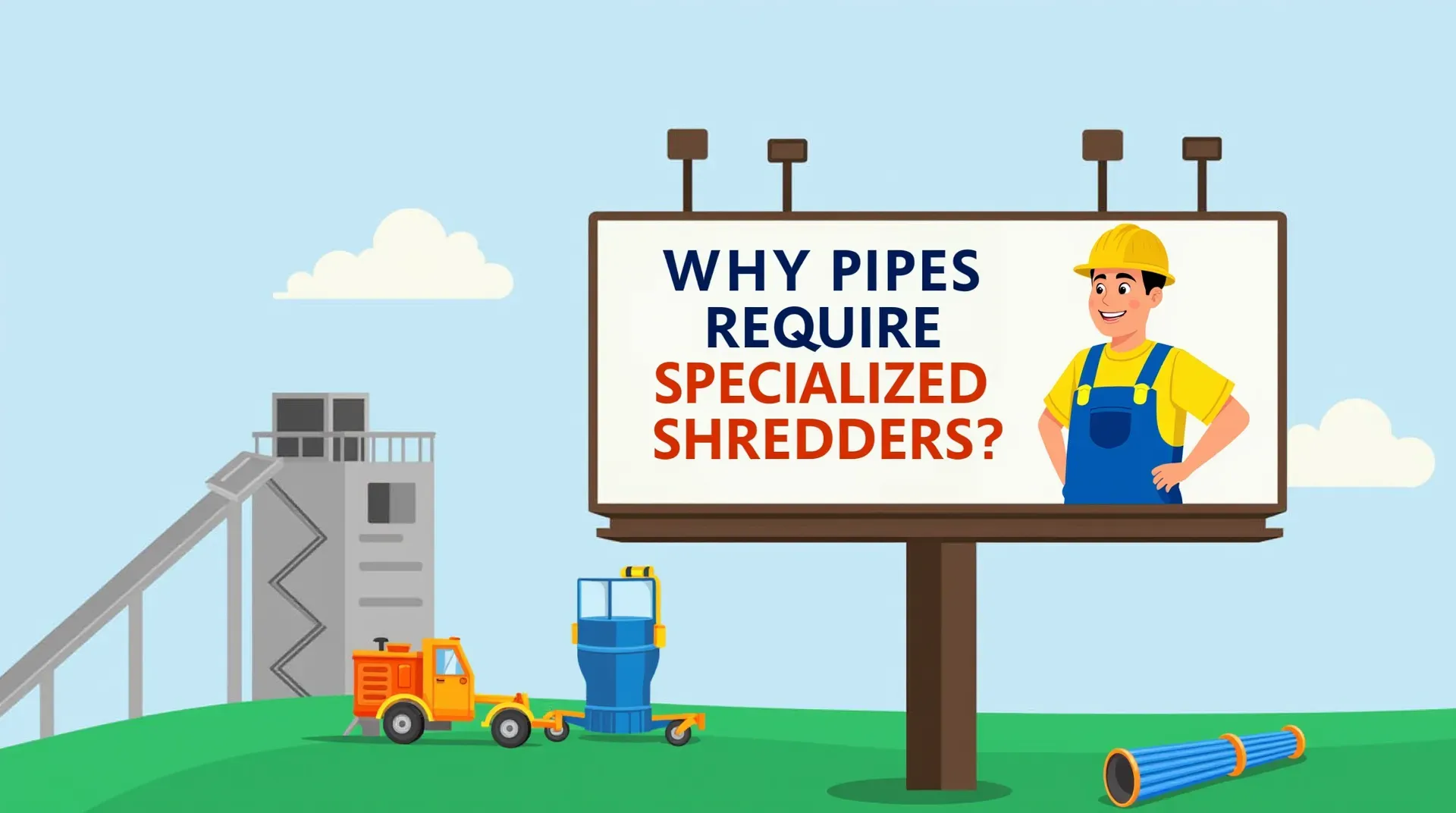HDPE (High-Density Polyethylene) pipes are widely used across various industries due to their durability, flexibility, and resistance to corrosion. However, their resilience also makes them challenging to recycle, which is why specialized shredders are necessary for the job. Let’s delve into the specifics of why HDPE pipes require specialized shredders and how a reliable pipe shredder can optimize recycling processes.
Understanding HDPE Pipes
Before we address the need for specialized shredders, it’s essential to grasp what makes HDPE pipes so unique. These pipes are made from a thermoplastic polymer known for its high strength-to-density ratio, flexibility, and resistance to chemicals and environmental stressors. They are commonly used in applications like water transportation, gas distribution, and sewage systems.
This strength, however, poses a challenge when it comes time to recycle them. HDPE pipes are thick, durable, and difficult to break down using standard plastic shredding equipment. That’s where a specialized pipe shredder comes into play.
Why HDPE Pipes Require Specialized Shredders
1. Material Toughness and Durability
HDPE pipes are designed to withstand significant external stress, making them difficult to shred using conventional machines. Standard plastic shredders often struggle with the thickness and rigidity of HDPE pipes, leading to equipment failure or inconsistent shredding results.
Specialized pipe shredders are equipped with heavy-duty blades and powerful motors to tackle the tough structure of HDPE pipes. These shredders are designed to process large volumes of material without clogging or overheating, ensuring a smooth recycling operation.
2. Size and Shape Challenges
Unlike typical plastic products, HDPE pipes come in varying diameters and lengths, often being very large and awkward to handle. Their size alone makes them incompatible with standard shredding machines. Specialized pipe shredders are built with wider feed openings and larger cutting chambers to accommodate these oversized pipes efficiently.
In some cases, these shredders come with automated systems that feed long or large-diameter pipes into the machine, ensuring optimal shredding without manual intervention. This reduces labor costs and increases safety during the recycling process.
3. Consistent Shredding for Recycling Standards
For recycling HDPE pipes, it is crucial that the material is shredded uniformly. Inconsistent or partial shredding can lead to problems in downstream processes such as washing, drying, and pelletizing. Specialized shredders ensure that HDPE pipes are reduced to a consistent size, which is essential for effective material reuse.
Consistent shredding also improves the efficiency of the recycling process by reducing downtime caused by blockages or malfunctions. A pipe shredder designed for HDPE materials can handle this task, providing uniform granules that are ready for further recycling stages.
4. High Throughput Capacity
Given the large scale at which HDPE pipes are often produced and used, recycling facilities need equipment that can handle a high volume of material. Standard shredders often cannot keep up with the demand for HDPE recycling, leading to bottlenecks in the process.
Specialized shredders for HDPE pipes are engineered to manage high throughput while maintaining performance and efficiency. These machines can process tons of HDPE pipes per hour, making them indispensable for commercial recycling plants.
5. Cost Efficiency and Environmental Impact
Using a specialized pipe shredder for HDPE pipes reduces energy consumption and maintenance costs in the long run. Regular shredders may wear out quickly when dealing with such tough materials, leading to frequent repairs or replacements. Specialized shredders, however, are built with durability in mind, making them a cost-effective solution.
Additionally, efficiently shredding HDPE pipes helps promote environmental sustainability by ensuring that more material is successfully recycled, reducing the amount of waste sent to landfills.
Benefits of Using a Pipe Shredder for HDPE Pipes
| Feature | Benefit |
|---|---|
| Heavy-duty blades | Enables efficient shredding of thick, tough HDPE pipes. |
| Large feed opening | Accommodates large and irregularly shaped pipes. |
| Automated feeding systems | Reduces labor costs and increases safety. |
| Consistent shredding output | Ensures uniform granules for downstream recycling processes. |
| High throughput capacity | Meets the demand for large-scale recycling operations. |
| Durability and longevity | Reduces maintenance costs and improves long-term efficiency. |
Choosing the Right Pipe Shredder for HDPE Recycling
When selecting a pipe shredder for HDPE recycling, consider factors like the size and shape of the pipes you plan to process, the volume of material, and the shredder’s power requirements. It’s crucial to invest in equipment specifically designed for HDPE pipes to ensure optimal performance, safety, and efficiency.
One great option to explore is the specialized shredders provided by Recycle Machine, which are built to handle the complexities of HDPE recycling with ease.
Conclusion
HDPE pipes are an essential part of modern infrastructure, but their recycling can be challenging due to their strength and size. Specialized pipe shredders play a vital role in efficiently breaking down these durable pipes into reusable material. By choosing the right shredding equipment, recycling facilities can not only streamline their operations but also contribute to a more sustainable future.



